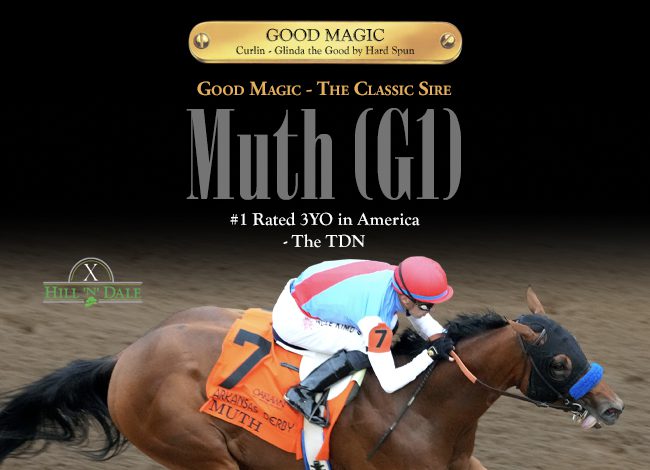James A. Sapara, an Edmonton-based Thoroughbred owner and breeder whose racing highlights included a 16-1 upset in the 2006 Queen's Plate S. at Woodbine, died late last week.
Details of Sapara's passing were just filtering in as deadline approached for this edition of TDN, but his death was confirmed via phone by John Sikura, president of Hill 'n' Dale Farms, and British bloodstock agent James Delahooke. Both men said Sapara was a good friend as well as a decades-long business partner, and the two acknowledged they had exchanged condolences with Sapara's widow, Alice, over the weekend.
Sapara's cause of death and his age were not immediately available, and obituary information and funeral arrangements have yet to be finalized. Cardiac issues had limited Sapara's involvement in the horse business in recent years, Delahooke said.
“Jim was one of those guys who was very proud. He came to Lexington and wanted to be more than just another guy who bought a horse,” Sikura said. “For a guy from western Canada, where purses are small and the horse business is really an afterthought, his involvement in the sport was unique. He bought a farm in Kentucky and immersed himself in the study of pedigrees. He bought expensive horses every year, and when he really liked a horse, he took a big swing.
“He was a straightforward guy. He paid his bills on time and in full consistently. He never quibbled and was very generous,” Sikura continued. “He was very demanding of himself and of others, but as long as you have consistent standards, demanding people are easy to work for and with, because all they want is the best for themselves and those who are around them.”
In his business away from the track, Sapara founded, among other ventures, the Alberta-based Winalta Inc., a manufacturer of modular homes and building products.
“He was a very successful businessman,” said Delahooke. “He manufactured modular buildings up in Edmonton, and his whole plant burned down one night and he had to sell all his horses to keep going, which was kind of sad. He did get back [into the sport] eventually. He was incredibly loyal to [longtime trainer] Josie Carroll and to me.”
Sapara got his start in the racing industry in 1983. In 1999, his Winsong Farm purchased Serena's Tune (Mr. Prospector), the first foal from multiple champion Serena's Song (Rahy), for $1 million at the Keeneland July Sale.
As a 3-year-old in 2001, Serena's Tune had just won Santa Anita's La Habra S. when Sikura traveled to California to inquire about purchasing a half-interest in her. Sapara agreed, and Sikura was into a family that, over the next decade, would consistently turn out stars in both the sales ring and on the track.
Sikura said that two months after he bought half of Serena's Tune, a fire devastated one of Sapara's manufacturing factories in Alberta. Over dinner, Sapara matter-of-factly told Sikura that he wanted to sell him his half of Serena's Tune so he could use the money to rebuild the plant–and the livelihoods–of his many employees who had been forced out of work. Sikura said he told Sapara that he didn't want to be opportunistic about the acquisition, but that Sapara was insistent that the transaction would be the best course of action.
“He felt an obligation not only to his business, but to his workforce,” Sikura said.
Sapara and his wife raced Edenwold (Southern Halo), Canada's champion 2-year-old male in 2005. The colt–named after a tiny town in Saskatchewan–was overlooked in the betting for the 2006 Queen's Plate, but stalked a hot pace and sprung a $34.40 upset in the most prestigious race for Canadian-bred 3-year-olds.
“I was watching all the publicity and I didn't think this horse deserved 15-1,” Sapara told the Globe and Mail in the aftermath of the win. “I said to Josie, 'They're not saying much about our horse.' And she said: 'Well, it's not important what they say before the race. It's what they're going to say after the race'…We've never lost our confidence in him.”
Sapara was a multiple graded stakes winning owner known for introducing other people to the sport. His ownership profile on Equibase lists involvement in 14 different partnerships.
In 2009, Sapara wrote an open letter to Kentucky Governor Steve Beshear in an attempt to impress upon him his personal passions for the sport at a time when the governor was convening a task force on the future of racing. Sapara asked TDN to publish the letter, which read in part:
“This is my 26th year in this Industry and I have been to Kentucky once or twice every year, though have missed two occasions because of health reasons. I have always made purchases there–even though somewhat conservative compared to some buyers. The point I am trying to make is that it was always the only place to go when you wanted to purchase world-class Thoroughbreds and it was one place where any 'blue collar Joe,' a Sheikh, or whoever, could come to dream that one of these fine animals could give them a 'high' which couldn't be reached in any other way. I know because I have been there.”
Not a subscriber? Click here to sign up for the daily PDF or alerts.





